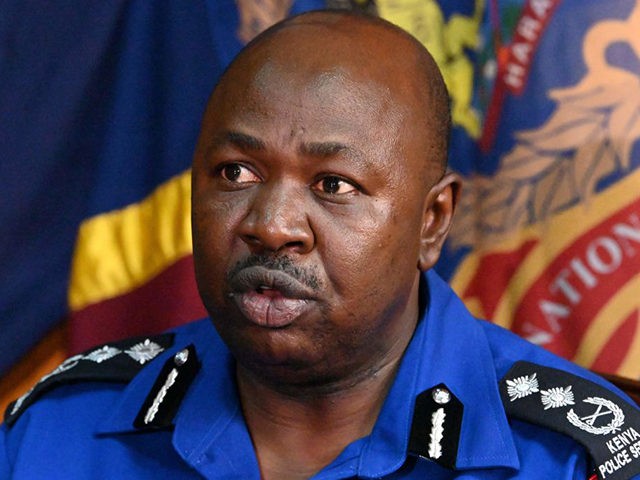Kenya marked the end of 200 days since the abduction of two Cuban slave doctors, believed to be under the custody of the jihadist terrorist group al-Shabaab, on Wednesday with hearings featuring witnesses of the abduction near the Somali border in April.
Landy Rodríguez and Asel Herrera were working at Mandera state’s hospital that month when gunmen attacked, killing a guard and abducting them. The Kenyan government sent tribal elders into Somalia, where authorities believe they are being held, to negotiate for their release in May. The elders returned saying the al-Shabaab jihadis responsible for the kidnapping wanted a $1.5 million ransom.
The Cuban government refused to pay it and has not overtly done much since to retrieve them, though it has insisted that a successful rescue operation requires discretion and that it would not negotiate with terrorists.
The Cuban media outlet ADNCuba recalled on Tuesday, observing the 200-day mark, that communist state television has not mentioned the case in over two months, when the head of the Cuban medical delegation to Cuba appeared to demand international cooperation to save the two doctors. Cuban officials have also not answered what security precautions they have taken to prevent a similar abduction from happening, as Havana sent 100 doctors to Kenya this year to help offer services in some of the nation’s most remote areas.
In July, Cuban health officials issued a statement vowing they would guarantee the safety of the doctors. The leftist propaganda outlet Telesur claimed that Cuba at the time “continues to ensure the safe return” of the doctors but did not offer any information on whether the doctors were safely returning.
“The Cuban government has not ceased for a moment in the efforts and negotiations for the safe return … of the kidnapped doctors,” Cuban Minister of Public Health Jose Angel Portal Miranda said at the time. The minister said he was in contact with the parents of the two doctors and other relatives in Cuba.
The latest news on the doctors comes from Nairobi, not Havana, where a police officer who responded to the terrorist attack that resulted in the abduction testified before a magistrate court on his experiences. The officer was serving as a guard and told the court, according to Kenya’s The Nation, that the doctors had expressed concerns with their driver, now believed to have played a role in the kidnapping.
“After about five kilometers, while in town, a [Toyota] Probox overtook us and blocked us, four men came out,” Constable Ramadhan Barua, the testifying officer, said. “Immediately the Toyota Probox overtook us, our driver stopped, pulled the handbrake and opened his door to escape.”
Gunfire ensued and the attackers captured the two doctors. The driver has been identified as Issack Ibrein Robow and is facing both terrorism and illegal immigration charges, as he did not appear to have a legal right to enter Kenya.
Diario de Cuba noted this week that, with the exception of the testimonies this week, the Kenyan government has offered little new evidence of the status of the doctors or the negotiations to free them. In September, a Kenyan government spokesman said that Nairobi had set in motion “elaborate plans” to save the doctors, but did not offer any more information.
“As a government, we are concerned and feel for the families,” Cyrus Oguna, the spokesman, said. “It is unfortunate that such an incident had to happen, but we are doing everything we can to bring them back alive.”
Al-Shabaab is a jihadist organization affiliated with al-Qaeda and operative mainly in remote areas of Somalia, where it has attracted growing international attention from the global jihadist movement. The most recent reports on the Cuban doctors suggest they are being kept in Jubaland region, Somalia, and being used as doctors to treat injured jihadists.
At the time of the doctors’ abduction, Mariela Castro, daughter of dictator Raúl Castro and head of the communist government’s “National Center for Sex Education,” blamed the United States for the doctors’ kidnapping.
“I think this is another one of Imperialism’s schemes,” Castro wrote on Twitter, referring to the nefarious “American Imperialism” that the regime has branded its paramount nemesis. “The Islamic State responds to them, but they have gotten into a swamp by kidnapping Cuban doctors.”
Al-Qaeda has a frosty relationship with the former al-Qaeda in Iraq, now known as the Islamic State, so experts do not believe ISIS collaborates with al-Shabaab. The United States is responsible for the death of Abu Bakr al-Baghdadi, the founder and “caliph” of the Islamic State.
Rodríguez and Herrera were in Kenya as part of Cuba’s multimillion-dollar slave doctor scheme, believed to generate over $11 billion for the regime a year. Cuba sends hundreds of doctors to developing nations around the world for a fee, but does not pay the doctors a salary. Instead, the doctors receive a meager “living stipend” that many who have escaped the system say is not enough to live a decent life in the countries they are serving.
The slave doctor program is highly unpopular in Kenya. The nation’s medical union unsuccessfully petitioned to keep the doctors from working in the country, arguing that too many native Kenyan doctors do not have jobs and that paying them directly would be cheaper than paying the Castro regime for slaves.
In September, the Kenyan government ordered a new “mentorship” program after finding that the Cuban doctors did not have sufficient medical training to safely practice. The program would require Kenyan doctors to evaluate and teach the imported doctors to prevent malpractice, which many protested proved the Cuban deal was of little benefit to the country.

COMMENTS
Please let us know if you're having issues with commenting.